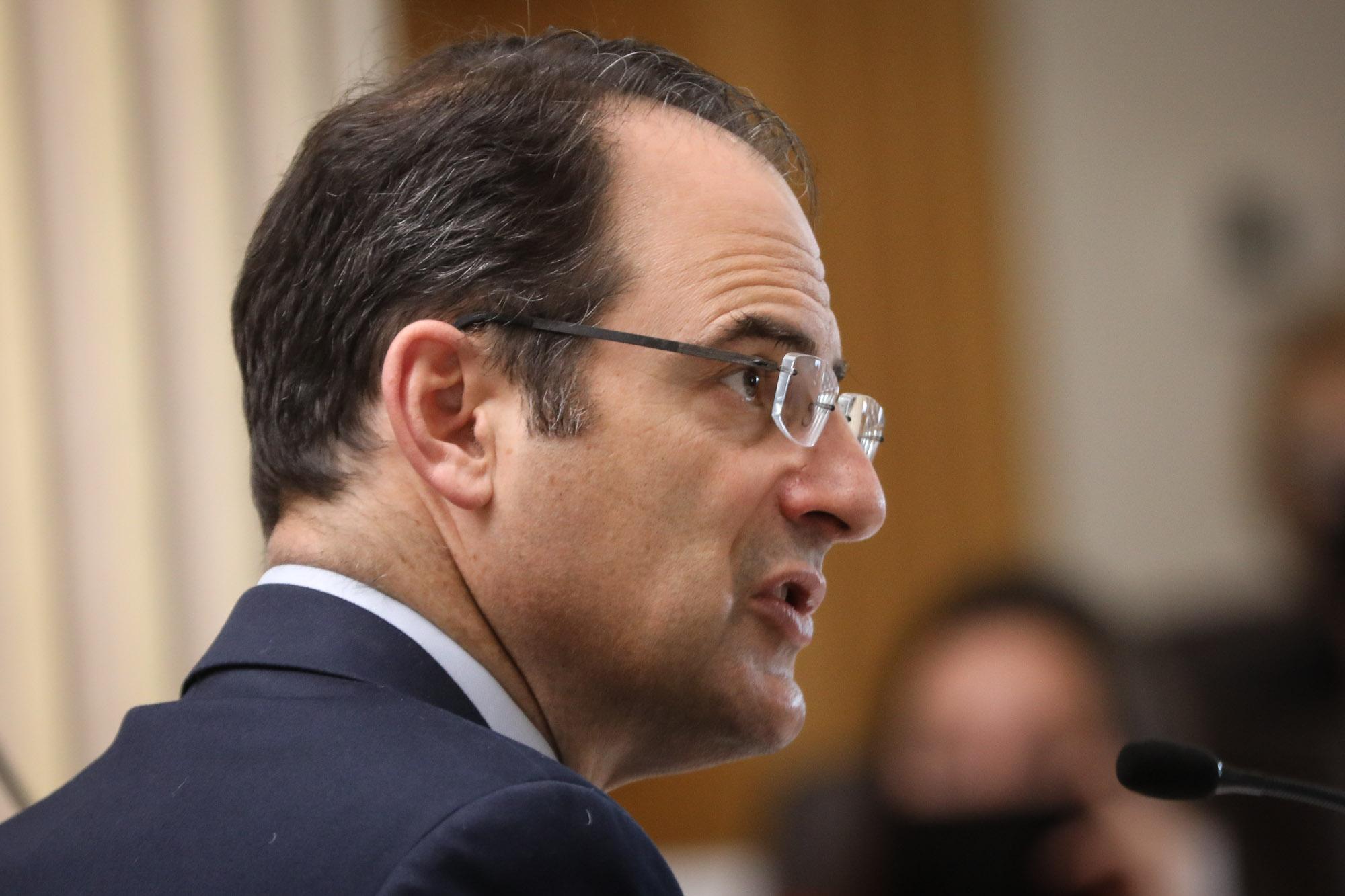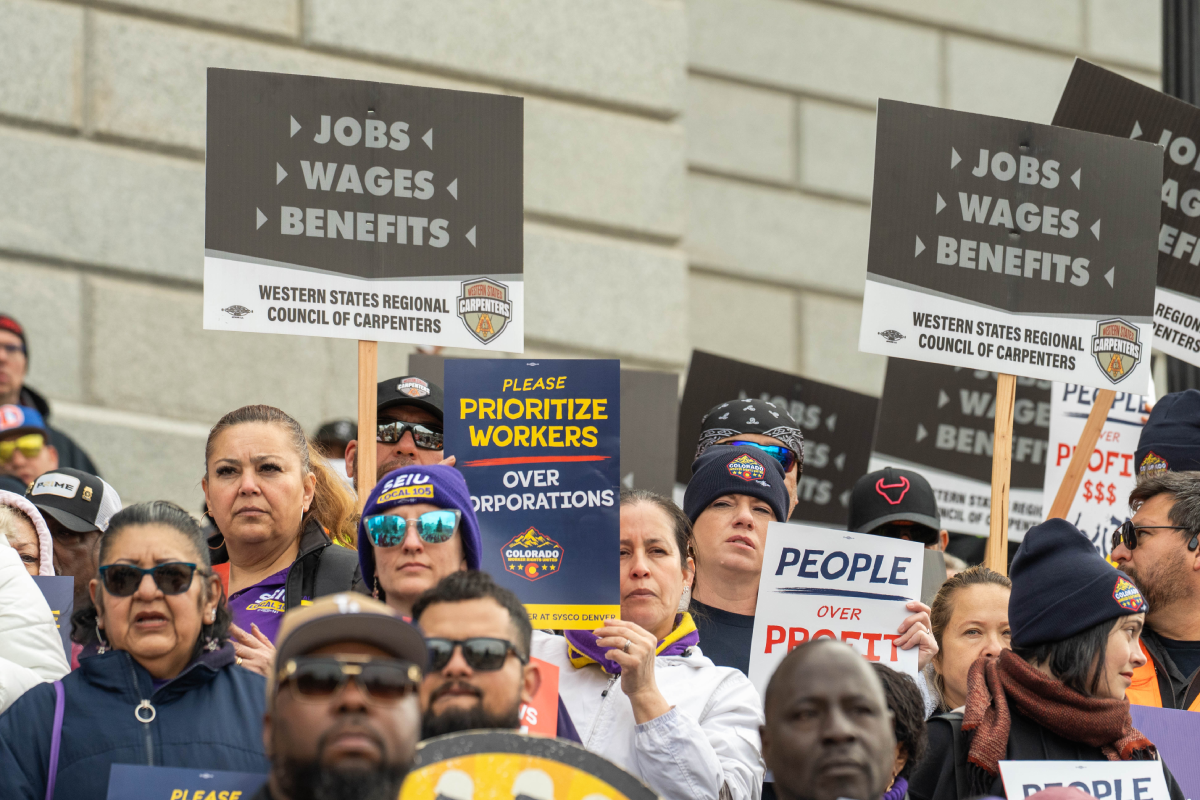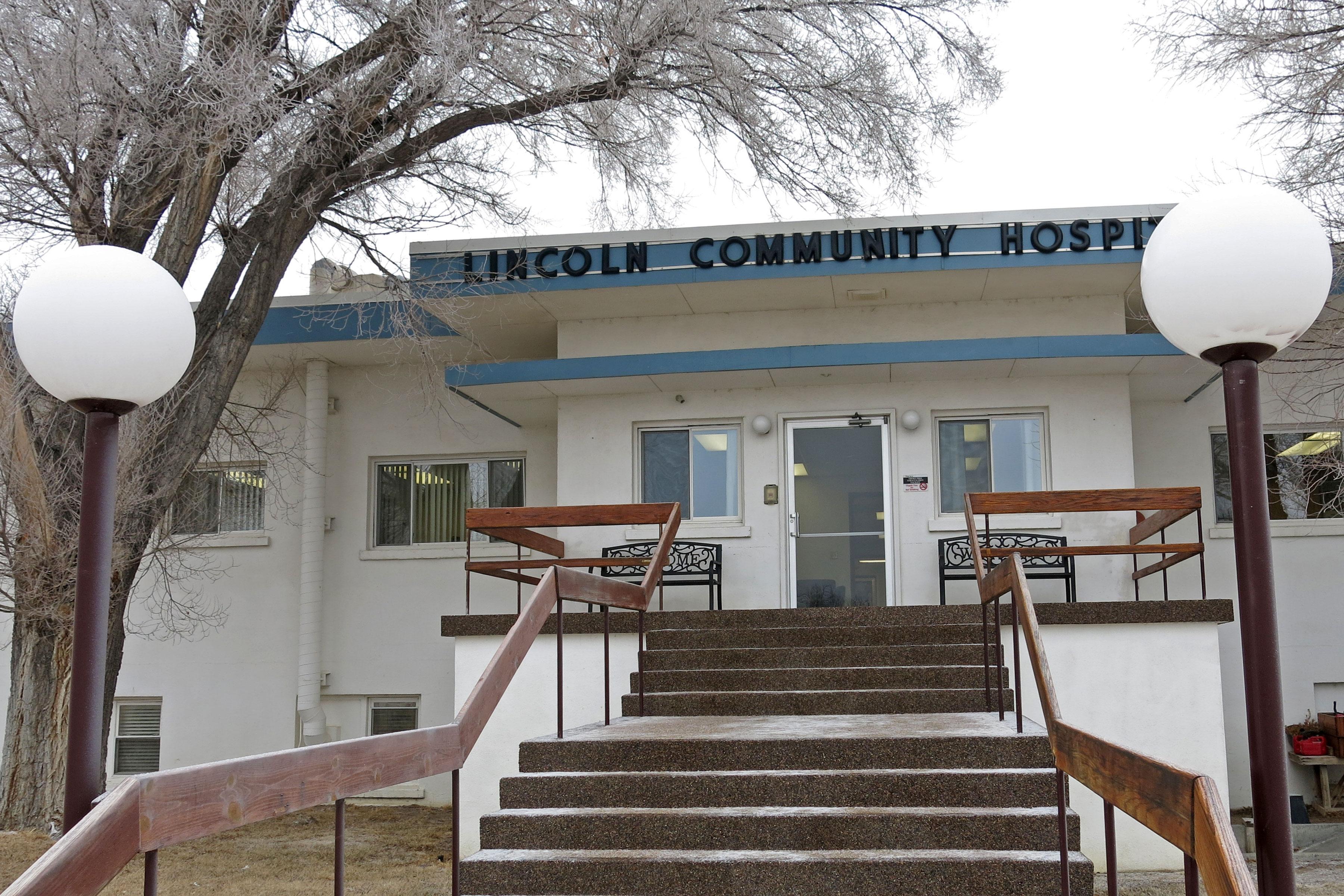
Updated at 3:28 p.m. on Jan. 22, 2025
A day after President Trump announced he would try to revoke birthright citizenship, aiming to limit undocumented immigration, Colorado Attorney General Phil Weiser and a coalition of attorneys general from nearly 20 states announced that they are challenging the White House executive order over the move.
They say ending birthright citizenship violates constitutional rights to which all children born in the U.S. are entitled.
“The White House executive order attempting to end birthright citizenship is flatly unconstitutional. The idea that a president could override the Constitution with the stroke of a pen is a flagrant assault on the rule of law and our constitutional republic,” Weiser said in a press release Tuesday morning.
“The executive order cannot be allowed to stand, and I will fight to ensure that all who are born in the United States keep their right to fully and fairly be a part of American society as a citizen with all its benefits and privileges,” he said.
Other jurisdictions joining the legal challenge include Arizona, California, Connecticut, Delaware, the District of Columbia, Hawaii, Maine, Maryland, Massachusetts, Michigan, Minnesota, Nevada, New Jersey, New Mexico, New York, North Carolina, Rhode Island, Vermont, Wisconsin, and the City and County of San Francisco.
On his first day in office Monday, Trump issued the executive order, something he’d promised on the campaign trail.
“As the grandson of Mexican immigrants, I know we need to secure our border so that the sacred process of American citizenship is not degraded. If we prioritize securing the border, then we won't have massive illegal immigrant caravans exploiting birthright citizenship,” said Rep. Gabe Evans, a Republican, in a statement to CPR News. Evans represents the 8th Congressional District, where the broader immigration issue helped him narrowly defeat Democrat Yadira Caraveo.
Evans wrote an opinion piece in the Colorado Sun last month, outlining his priorities for fixing the immigration system. “For those who are contributing to our society, not causing problems, and want to legally join the American dream, I do not support immediate deportation or family separation,” Evans wrote.
Rep. Lauren Boebert said in a statement Wednesday that she supports the order from President Trump. “I strongly believe it is time to end birthright citizenship moving forward, which has been badly warped from its original intention and turned into a magnet for abuse by tourists and illegal aliens," Boebert said. "I expect there will be a legal battle over this topic, but it’s about time we had one.”
“The constitution makes very clear in the 14th amendment that if you're born here on U.S. soil, you are a citizen. You have the rights of a citizen. Colorado has a lot of people who are here and will be here because of what's called birthright citizenship. I'm going to fight to protect them,” Weiser told Colorado Matters host Ryan Warner in an interview Tuesday.
Representatives of Colorado government agencies which may have a role in dealing with any changes declined interview requests, but issued statements.
A spokesperson for the Colorado Department of Public Health and Environment said, via email, that it's carefully evaluating all executive orders and monitoring any related legal actions and is prepared “to uphold the integrity and privacy of our vital records system.”
Colorado is a “closed record state,” meaning vital records, including birth and death certificates, “are not public records,” she wrote. Only individuals with a qualifying relationship to the newborn or decedent are eligible to request them. It’s also important to note, she said, that Colorado birth certificates do not include any information regarding citizenship.
A spokesperson for the Colorado state demographer, which tracks demographic trends, said it’s reviewing all federal executive orders to evaluate the impact to our state and Coloradans, as is customary with every change in administration. “The order does not take effect for 30 days,” she noted.
National advocates for immigrants’ rights advocates on Monday also sued the Trump administration over the executive order.
Colorado lawmakers have taken steps to head off things like courthouse arrests and preventing Colorado law enforcement agencies from arresting and detaining people without warrants signed by a judge, said Tim Macdonald, the legal director for ACLU of Colorado.
Still, he said his group was getting calls from people wondering about what the order would mean.
“This is such a cruel and misguided effort. It will impact real people's lives,” he said in an interview. “People who are doing their best to support their family and be standup members of our communities. It could have a significant impact.”
Representatives for hospitals in Colorado said they weren’t sure what impact the order would have.
Dr. Michelle Barron, the senior medical director of infection prevention and control for UCHealth, urged patients with questions to discuss their situation with their doctor or nurse.
“Talk to their providers because I think there's a lot of safety nets that exist on the local level as well as other levels that there are resources that can be provided to individuals,” she said in an interview. “I don't want people to fear going to see their doctor or their provider because they're worried about all this other stuff.”
“Children’s Hospital Colorado remains committed to being the trusted pediatric health resource for all children and youth, parents, caregivers and providers who need us across the region, and we will continue to deliver expert care while complying with all state and federal rules and regulations,” said a spokesperson in a statement. “As the pediatric health care landscape is always evolving, we will not speculate on any changes at this time.”
The most recent available U.S. Census survey data from 2023, put the total number of foreign-born residents at a bit under 10 percent of Colorado’s population of almost 6 million. That figure is about 565,000 people, CPR reported in October. Nearly half are naturalized citizens.
Estimates on the number of foreign-born residents in Colorado without proper documentation have varied from around 140,000 to about 160,000.
The 14th Amendment enshrined birthright citizenship in the U.S. Constitution more than a century and a half ago, in 1868, giving citizenship rights to children born in the U.S., regardless of their parents' legal status. Trump’s order banning that right would take effect in a month, according to NPR, and shrink the number of people who can get it based on parental’ legal status.
The suit argues the decision violates the 14th Amendment and Section 1401 of the Immigration and Nationality Act. It was filed in the U.S. District Court for the District of Massachusetts and aims to invalidate the order and stop actions to implement it.
As far back as 2018, Weiser has vowed to challenge any attempt by Trump to end birthright citizenship. In November of that year, as he ran for a first term as attorney general, Weiser and his opponent, Republican George Brauchler, both said they would challenge Trump if he made the move.
Weiser said there was no gray area on the issue. “The idea that the president could override the constitution with an executive order is appalling and is a flagrant assault on the rule of law and the rights of people who are born in this country,” Weiser said at the time. “As Colorado’s attorney general, I’ll defend the right of everyone, that includes people born to immigrants.”
Brauchler made similar comments.
“If my conclusion was this was violative of our constitution, then yes, I would push back. And if that meant having to go to court in order to force the issue back into Congress’s hands, I would do that,” Brauchler said in November 2018.
The lawsuit states birthright citizenship dates back centuries, even before the Civil War, and has been upheld in the past by the U.S. Supreme Court, according to the press release.
“It's happened twice before where this issue's come up. Both times, birthright citizenship was affirmed. This effort to undermine the Constitution by executive order is wrong. It's not going to stand and we're going to win in court,” Weiser said in the interview. “I have a hard time imagining how the Supreme Court upholds this executive order because it would overrule not just the text of the Constitution, but prior cases. It seems very, very unlikely. If there is any Supreme Court decision that gives some comfort to this order, it's going to be a dark day in our history and we'll have to cross that bridge when we get to it.”
The lawsuit states birthright citizenship dates back centuries, even before the Civil War, and has been upheld twice by the U.S. Supreme Court, according to the press release.
If Trump’s order is upheld, those who lose U.S. citizenship would lose “most basic rights,” like a right to vote, serve on a jury and run for some elected offices, and would be “threatened with the risk of deportation,” it said.
It would also have a big impact on states like Colorado, which would likely lose federal funds, and have to modify the operation and administration of benefits for a wide variety of state-administered programs from Medicaid to CHIP (Children’s Health Insurance Program) to adoption assistance programs, according to the release.
Weiser announced earlier this month that he’s running for governor. Warner asked to what extent being a foil for the Trump administration could be a boon for his political aspirations. “My job as Attorney General is to do what's right for Colorado and I'm going to do what's right regardless of any political consequences,” Weiser said. “That is my first and foremost responsibility and will continue to be what guides me as I do this important work on behalf of the people of Colorado.”
The Trump team, and some conservative legal scholars, have argued that allowing birthright citizenship for children of immigrants without legal documentation is based on a misreading of the amendment, according to Fox News.
They say that people who aren’t lawfully present in the United States are not “subject to the jurisdiction” of the government in the U.S.
Editor’s note: This story has been updated to reflect additional comment from Weiser and those from other Colorado state agencies.









